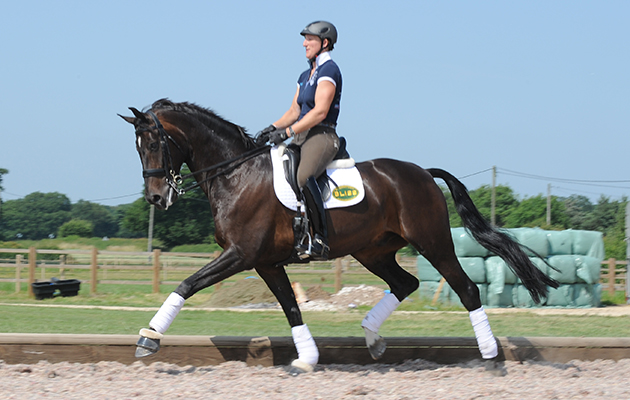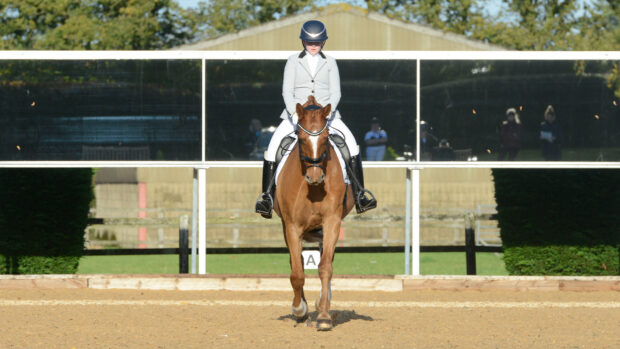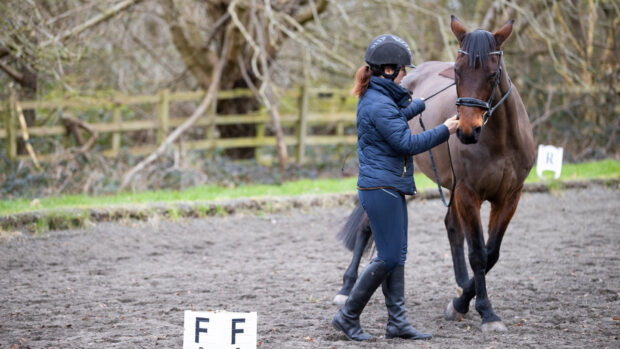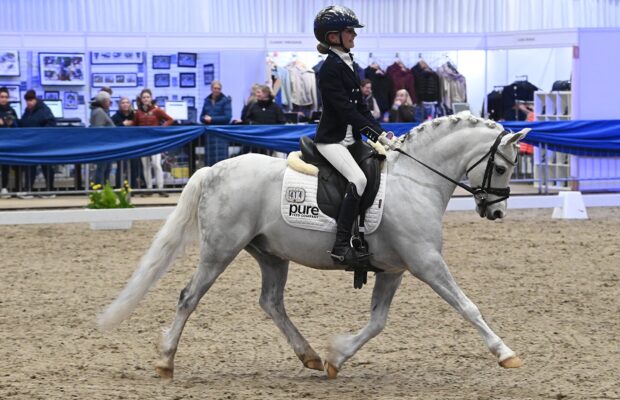Ruth Edge’s dressage for eventing masterclass is brought to you in association with Baileys Horse Feeds
Have you ever ridden a pirouette? Whether you’re a grassroots competitor or striving to get to the top level, incorporating walk pirouettes in your horse’s training provides useful skills for future success.
Pirouettes — which require the horse to turn the shoulders around the hind leg while keeping the hind leg active and the horse bending in the direction of the pirouette — may seem daunting, but they don’t have to be.
Ruth Edge, who won Luhmuhlen CCI4* in 2007 and has seven national dressage titles to her name, shares her five steps to successfully introducing pirouettes.
Continued below…
 Champions’ Choice Champions’ Choice
Baileys Competition Range has always been one of the most credible on the market and is the choice of Olympic champions and amateur riders alike. All contain Alltech’s Bioplex® chelated minerals and Sel-Plex® organic selenium, which are more easily absorbed and utilised by the horse’s body, thus reducing any risk of a shortfall of these essential nutrients, when feeds are given at recommended levels. Baileys never scrimp on protein quality either so, whether eating low calorie Performance Balancer, or higher energy All-Round Competition Mix, horses can build the rounded muscular physique and top line they need, whatever discipline they compete in. With a choice of energy sources, there’s a feed to suit everyone, and nutritional back-up from a knowledgeable, understanding team For answers to your feeding questions, check out Baileys’ Feeding Answers. |
1. “First the horse needs to learn to step under its body with its outside hindleg,” says Ruth.
2. Make sure the horse is working actively forward and is schooled at a level at which he feels confident and is physically strong enough to engage the hindleg when you ask.
-Top tip: transitions are useful for ensuring a horse is working in front of your leg.
“The first step the horse takes should be the quality of pace you want rather than taking a couple of strides to get the quality you’re asking for,” advises Ruth.
3. Build up to a pirouette by riding travers — where the horse works with his hindquarters on the inside track while bending in the direction of travel — on a 10m circle.
Continued below…

Ruth Edge: How to ride the perfect 10m circle
Struggling to ride round circles, frustrated by a horse who is heavy in your hand or unable to ride a
4. “When you put your outside leg on, the horse’s hind leg needs to come underneath him rather than stepping out. If it isn’t engaged you will get a walk-round rather than a pirouette,” explains Ruth.
– Top tip: if the hindleg isn’t engaged enough the pirouette will get ‘stuck’ and the horse will lose the walk rhythm.
“For example, if you are doing a left pirouette and the inside hind leg steps left too much it’s a bit like trying to do half-pass with the quarters leading — you can never ride forward because the shoulder is left behind,” says Ruth.
5. Gradually make the circles smaller and turn the shoulder until you are doing a pirouette. This may take several sessions, depending on the age and experience of your horse.
– Top tip: the horse’s shoulder must be in front so that it turns first during a pirouette, but don’t have too much neck bend.
“If the shoulder doesn’t lead, the horse will get stuck and slow down. They can’t turn if the shoulder isn’t leading,” explains Ruth.
Don’t miss the full masterclass with Ruth Edge in the current issue (7 January 2016) of Horse & Hound, on sale now




